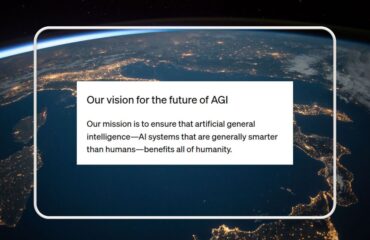By James Myers
As humans, we are observers, and using the symbols of our languages we communicate our observations with each other. Observing and sharing observations is essential to human survival – it always has been and always will be, when none of us can exist entirely independently of any other human.
The fundamental limit of observation, however, is that the observer cannot observe itself. Why? Because as soon as we observe ourselves, we change ourselves with the information gained from the observation. We can never make a complete account of ourselves, with this limitation.
It’s actually a good limitation, if you think about it. Without it, what potential or desire would we have to modify our account, with the complacency that a complete account would deliver?
Our power of observation can, however, be dulled by reliance on our technology. Why, for example, do we need to observe the layout of city streets when GPS technology will point us to the destination without the use of our minds? Will we ever require a sense of direction, when technology will do it for us? Why do we need writing skills, when ChatGPT can create a compelling job application or university essay for us?
In increasing our dependence on technology, we should be careful to observe that technology does not always work as it was designed to. Why? Because the creators – who are humans – are not exempt from error. Error is essential to our learning process, as distressing as errors can sometimes be. Examples of technological failures are all around us to observe, and given our technological dependence it is essential that we observe these failures closely so that we can fix them and maintain human control.
Life Imitates Art?
There was a reason The Quantum Record featured the ground-breaking Stanley Kubrick classic film 2001: A Space Odyssey in our January, 2023 edition. It’s not a film that would be a box office hit in 2023; even when it was released in 1968, actor Rock Hudson was reported to have proclaimed on exiting the theatre, “Will someone tell me what the hell this is about?” Audiences in 2023 would likely be bored to death by the lengthy opening sequence and dissatisfied by the inexplicable ending, failing to understand the film’s analogy to the relationship between humans and technology over time. But the film’s deeply entrenched legacy as a classic of movie-making and story-telling (Arthur C. Clarke wrote the book) continues to attract viewers and thinkers.
The mystery about the film’s meaning endures to today, although we understand more now about its references to the quantum nature of time and space. The film was apocryphal, and its enduring appeal as a classic is because it makes us reflect on ourselves. We can’t observe ourselves, but we can reflect, and there is little dispute that the movie represents a profound statement on humanity’s relationship with technology.
As we consider our quest to conquer the physics of space and time and explore the stars – goals which undoubtedly will require dependence on technology similar to that presented in 2001: A Space Odyssey– we could reflect on the defiant technology of the computer HAL 9000 in the movie.
A computer, after all, is limited by its algorithm, which is programmed by humans. Humans have emotions and biases, things that we reflect on and change over the course of time. But an algorithm is programmed by a human at a specific point in time, and can carry the prejudices of the human programmers at such time.
Listen to the film’s sequence of human astronaut Dave defending himself against HAL 9000’s operating program. The computer reflects the prejudice and personality of its programmer for the success of the mission to reach Jupiter – at all costs, even at the cost of human life.
“This mission is too important for me to allow you to jeopardize it,” the computer declares, after having disposed of the other crew members. A battle of man against machine ensues. Although Dave prevails, it’s a battle we should not want to repeat – although the groundwork for such a battle is being established today, with our dependence on our technology.



